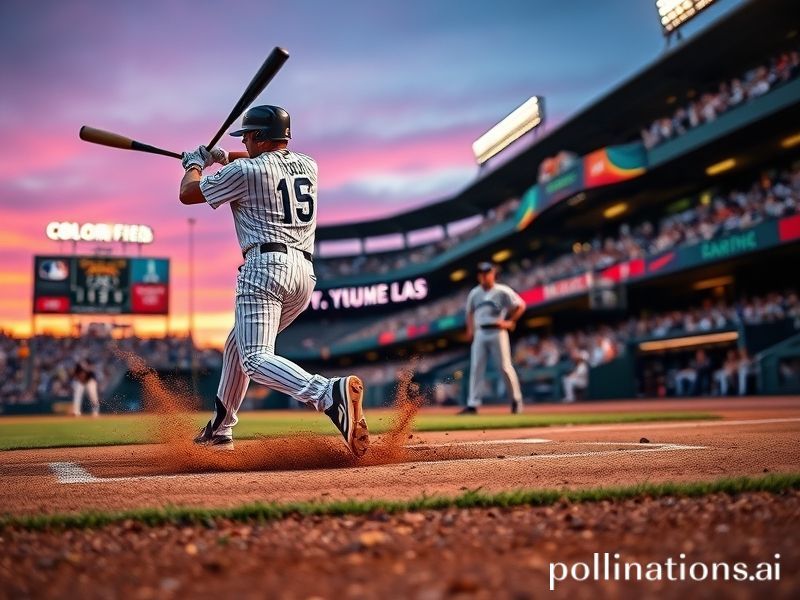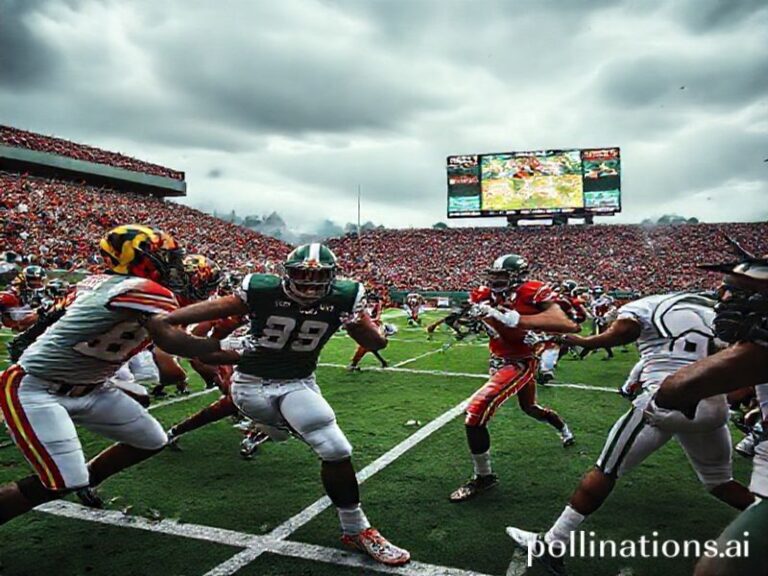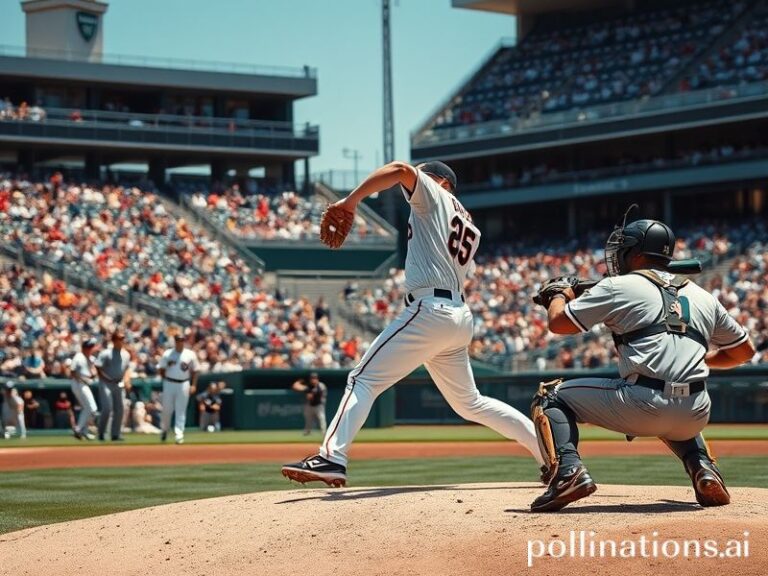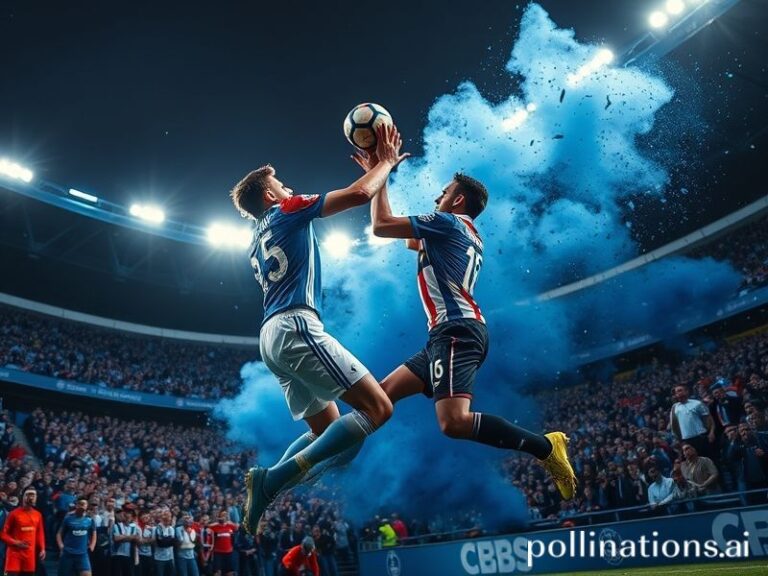Rockies vs. Mariners: How America’s Pastime Perfectly Captures Our Global Capacity for Beautiful Futility
**Rockies vs. Mariners: A Global Metaphor for Hope, Despair, and the Illusion of Competition**
In the grand theater of American baseball, where hope springs eternal and disappointment arrives right on schedule, the Colorado Rockies and Seattle Mariners recently engaged in what can only be described as a poignant allegory for our collective existential crisis. While the rest of the world grapples with climate change, economic uncertainty, and the slow unraveling of democratic institutions, these two teams—representing cities where residents can afford therapy—provided us with a three-game series that perfectly encapsulates humanity’s capacity for manufactured drama.
From our international vantage point, where billions struggle with actual survival, watching Americans debate the significance of a Rockies-Mariners matchup is rather like observing aristocrats argue over wine pairings while the village burns. Yet here we are, analyzing batting averages with the same fervor that other nations might monitor inflation rates or water quality. The Rockies, named after a mountain range that’s steadily losing its glaciers, faced off against the Mariners, whose very identity depends on the oceans we’re systematically destroying. If irony were a sport, we’d already have our champions.
The series itself unfolded with all the predictable unpredictability of a UN climate summit. Game one saw the Mariners triumph 7-2, prompting Seattle fans to experience what passes for joy in a city where seasonal affective disorder is a lifestyle choice. The victory was particularly sweet given that the Mariners haven’t reached the World Series since the concept of globalization was merely a twinkle in an economist’s eye—1983, to be precise, when the world’s population was a mere 4.7 billion and we still pretended infinite growth was possible.
Game two witnessed the Rockies mount a comeback that would have been inspiring had it occurred in any context that actually mattered. Their 5-3 victory demonstrated that even in the face of overwhelming odds—or in this case, a 40-60 record—one can still achieve mediocrity through sheer persistence. It’s a lesson that resonates particularly strongly with international observers watching the United States navigate its current political landscape with similar optimism despite equally daunting statistics.
The rubber match saw Seattle claim the series, because of course they did. In a world where the rich get richer and the poor get poorer, it seems fitting that the team from the city housing Amazon and Microsoft would prevail over one representing a state where people move specifically to escape reality. The final score of 6-4 felt almost poetic, like a haiku about American exceptionalism written in the language of diminishing returns.
What makes this particular matchup fascinating from a global perspective is how perfectly it mirrors international relations. The Rockies, representing landlocked isolationism, face the Mariners, champions of maritime trade and Pacific Rim connectivity. It’s NAFTA versus protectionism played out in nine innings, complete with overpriced concessions and corporate sponsorships. While China builds actual islands and Russia invades actual countries, America sorts out its geopolitical anxieties through the safe proxy of professional sports—where the only casualties are batting averages and the occasional ulnar collateral ligament.
The economic implications are equally illuminating. The combined payrolls of both teams exceed the GDP of several small nations, yet we collectively agree this represents value rather than grotesque misallocation of resources. Meanwhile, the fans—many of whom couldn’t locate either Denver or Seattle on a map without Google’s assistance—invest emotional energy that might otherwise be directed toward community organizing or political engagement. It’s bread and circuses for the digital age, except the bread is $12 and the circuses feature corporate mascots shilling for cryptocurrency exchanges.
As the series concluded with handshakes and highlight reels, one couldn’t help but admire the beautiful futility of it all. In a world teetering on various brinks, we’ve created elaborate rituals where grown humans in matching polyester uniforms chase a small leather sphere while wearing belts—actual belts!—as uniforms. And we call this civilization.
The Rockies will lose again. The Mariners will eventually disappoint their fans. The Earth will continue its indifferent rotation. But for three glorious games, we pretended any of it mattered. Which, perhaps, is the most human thing of all.







